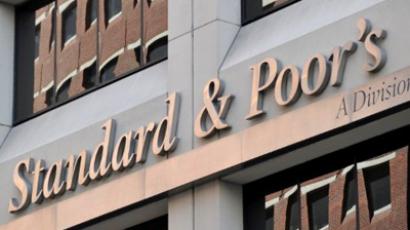Democratic price of austerity measures too great
Eurozone leaders are working against the clock to set up an extensive rescue plan for the area in the hope of preventing the global economy from plunging into a new recession. The idea now is to boost the size of the eurozone bailout fund to € 2 trillion.
Greece could be allowed to default on up to 50 per cent of its debts as part of the €2.6 trillion plan. The Greek finance minister, Evangelos Venizelos, however dismissed reports that he has discussed the scenario of an orderly default by Athens with International Monetary Fund chief Christine Lagarde and European Central Bank head Jean-Claude Trichet. This follows an IMF warning that it may not be able to help out the bigger European economies. Leaders are also planning to write off half of Greece's staggering debt. But analysts say a default is still on the cards.British MEP David Campbell-Bannerman told RT the purpose of creating the eurozone bailout fund is to try and stop the crisis contagion.“If Greece does default, and everyone now talks in terms of that actually happening, or half defaulting, they want to stop that hitting Spain and Italy, the larger economies, which would cause a lot more damage,” he said.Half of Greece's debt could be written off as part of the new plan. This would mean saving French and German banks too, as the world is very interconnected, Campbell-Bannerman believes.“The banking sector particularly is very interconnected. French banks are very exposed to Greek debt, so if it hits French banks, then it hits all the poor banks around the world, so there is real concern here,” he added. It might look like the IMF's recipe to get out of debt is more and more public cuts. But a lot of countries are saying no to that, noted Campbell-Bannerman.“You can see real trouble in the streets of Greece. There are serious political movements in Spain among the young people, and Italy. The democratic price of more austerity is potentially too great,” he concluded.Greece has been hit by another wave of public protests against public cuts. Thousands of students and teachers have been protesting outside the Greek parliament in Athens on Thursday, voicing their grievances over the government's university budget cuts. The unemployment rate has reached 16 per cent and is still rising, thus hitting young people hard. Tens of thousands have already had to leave their native towns to look for work."We were disappointed by the government because they told us before that the poverty is not our fault. But we pay for that," Stelios Polkas, an unemployed English teacher told AP.














